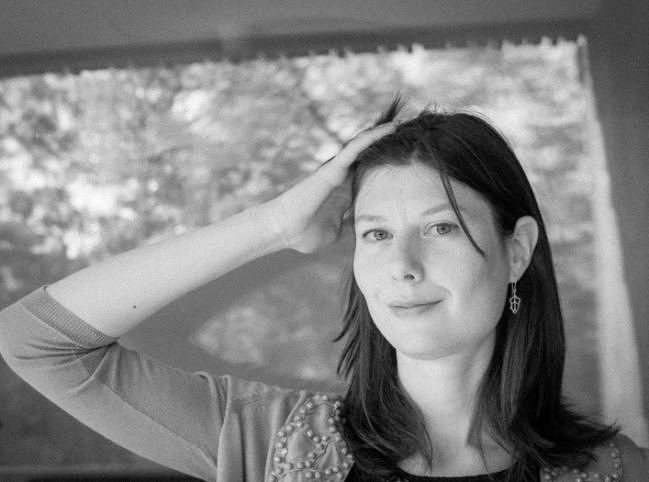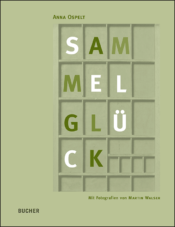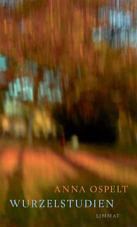Anna Ospelt grew up in Vaduz. In her mid-twenties, she first published in the Basel university newspaper Gezetera and the literary magazine NARR. She gained further experience in the literary world through internships at the publishing houses Suhrkamp and Aufbau, as a student assistant at the Literaturhaus Basel and during journalistic excursions. Her first journalistic essay, “Sammelglück”, was published in 2015 by Bucher Verlag, followed later by her first literary book, “Wurzelstudien”, in 2020 by Limmat Verlag. She is currently in a transitional phase. She has a job in a bakery, which she combines with writing part-time. Soon she will be able to devote herself more to literature and literature education. Among other things, she is planning to establish a Young House of Literature together with the Literaturhaus Liechtenstein. Anna Ospelt lives in Vaduz and is 33 years old.
Where and how did you grow up?
In Vaduz. I attended public schools and graduated from high school with a focus on art and education. At 18, it was very important for me to break out of the “province”.
Could you describe your professional background?
Actually, I wanted to study art but I didn’t get into the preliminary course in Lucerne – this detour led me to taking up sociology studies in Basel instead. This gave me a very good basis for thinking and research, and I made close friends there.
I had my first literary publications in my mid-twenties in the Basel university newspaper Gezetera and the literary magazine NARR, which was very important for me. I gained further experience in the literary world through editorial internships at the publishing houses Suhrkamp and Aufbau, as a student assistant at the Literaturhaus Basel, through journalistic excursions and other bits and pieces. My first journalistic essay, “Sammelglück”, was published by Bucher Verlag in 2015, followed later by my first literary book, “Wurzelstudien”, by Limmat Verlag in 2020.
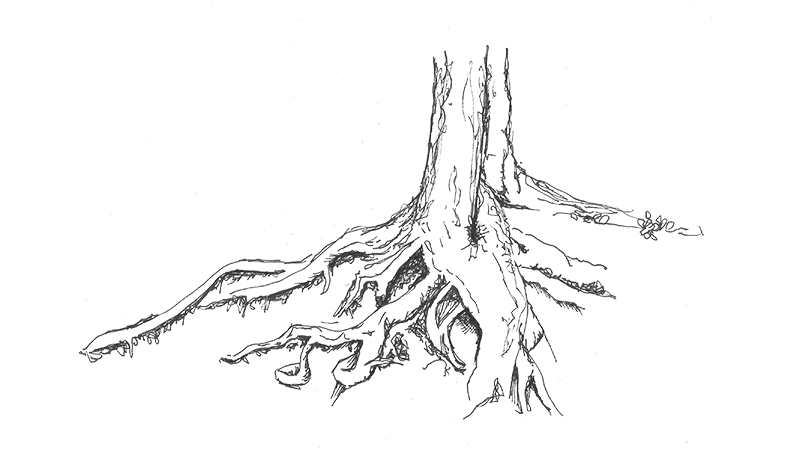
Were there certain events or stations that were formative for your career?
The literary and artistic environment in Basel. The times in Berlin were also very important, especially the publishing internship with Suhrkamp, and the time as “writer in residence” at the Literary Colloquium Berlin.
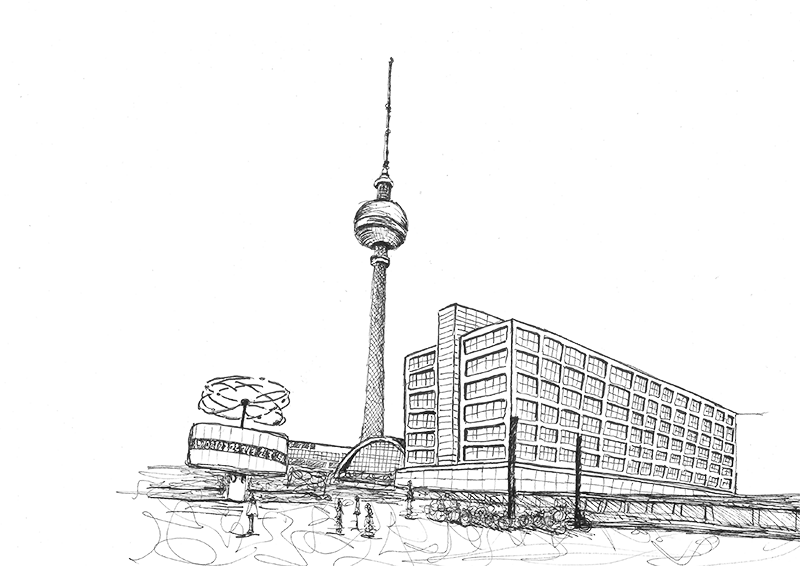
Have there been certain people who have been formative for your career?
There have been various people who have provided me with both positive and negative feedback (contradiction is as important as encouragement).
Has your environment supported you in your career?
My family and my boyfriend are very supportive, as are many friends. During my studies I had a very literary, artistic environment and surprisingly, some of them are now active in the world of literature, art or theatre and continue to be important discussion partners. This is certainly very motivating and not least important it has provided me with a “network”, if you want to use that word – but it has little to do with the sterile “networking” advertised in business guides.
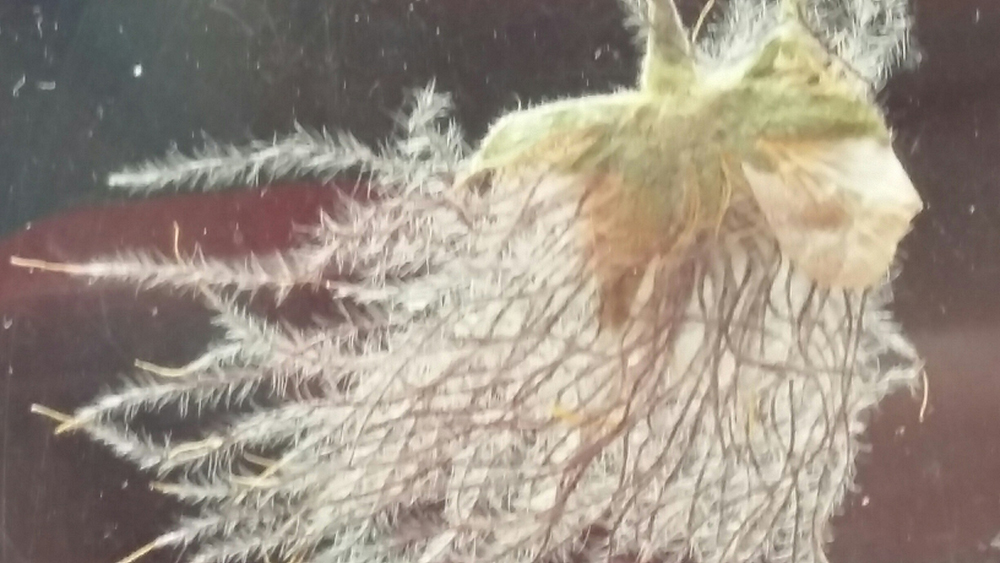
What are your current activities?
Together with the Literaturhaus Liechtenstein I am building a Young House of Literature. In addition, starting next summer, I will also be giving writing workshops for adults and seniors and offer editing services. I am not currently writing a new book, but I am working on my poems, translations and I try to write a few sentences in my notebook every day.
Does what you are currently doing fulfil you?
As mentioned above, I am currently in a professional transition phase. But I am very happy about the upcoming prospect of working in literature education, and the opportunity of passing on my experience in my own writing practice and at the same time developing my didactic skills.
Do you think that you yourself have an influence on whether your activities are fulfilling?
Yes, looking after myself and regularity in giving space to my own creative work are certainly very important.
What or who inspires you in everyday life?
I think the most important thing is to work regularly and to create niches for myself every day, where my perspective is open. At best, I work artistically every day, even if it’s only a quarter of an hour on very busy days. And if it’s “nothing” that I produce – then I “sketch”, the important thing is that the pencil remains in motion.
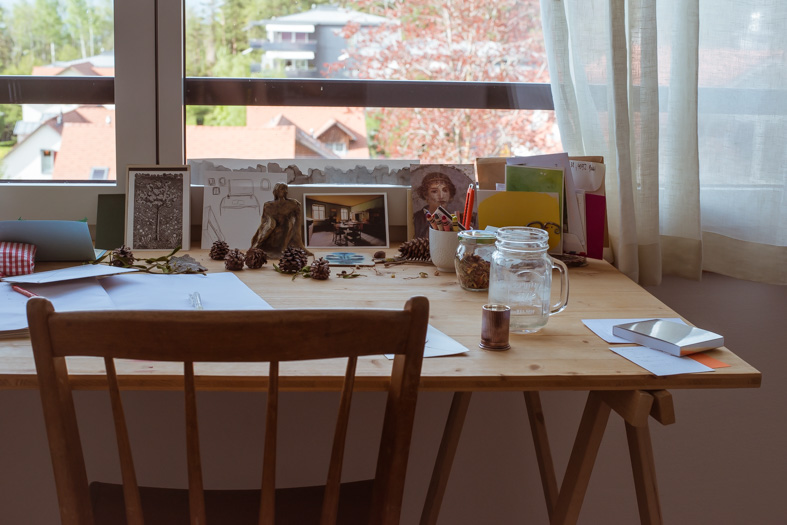
What or who gives you strength and energy in everyday life?
I find a lot of balance by being outside walking in nature. Sundays without work and Internet are worth their weight in gold. In addition, I can share a strategy here that I have only tested for a short time: for almost three months I have been practicing daily freewriting*. Even though it’s sometimes only 10 minutes that I sit and write, it has brought a lot of momentum to my writing – and the feeling of being “in it”, in writing – that gives a lot of energy.
There are “magic moments” when everything seems to fit. Moments that fulfil, inspire and give strength. Moments that confirm that the effort is worthwhile and that what you do is meaningful and valuable. Have you already experienced such moments in relation to your own activities?
Three years ago, I had a three-month scholarship as “writer in residence” in Berlin. At the beginning I had difficulties in dealing with so much freedom. But after I started cycling to a lake every day, running around the lake and then swimming, my days had a structure. And as a result of this I soon felt very rested and physically fit, I had time for my thoughts and writing, and over time these “magical” moments began to appear – I wouldn’t call them magical, I would simply call them coincidences that I was able to make the most of. These can be found in my book “Wurzelstudien”. If you want to experience magical moments, I believe you have to give the coincidences in your life space in order to be able to perceive them.
Do you actively do something for it, so that such “magic” moments can happen?
Of course I don’t have such moments all the time, but I’m convinced that they can happen to anyone and everyone if you give your own thoughts and observations room to breathe, and if you are open to coincidences and are willing to stick with them. It may be the case now and then that art happens by chance and in the short term but if someone wants to create a substantial piece of work, I think it needs first and foremost a lot of time, space and even more joy, diligence and perseverance.
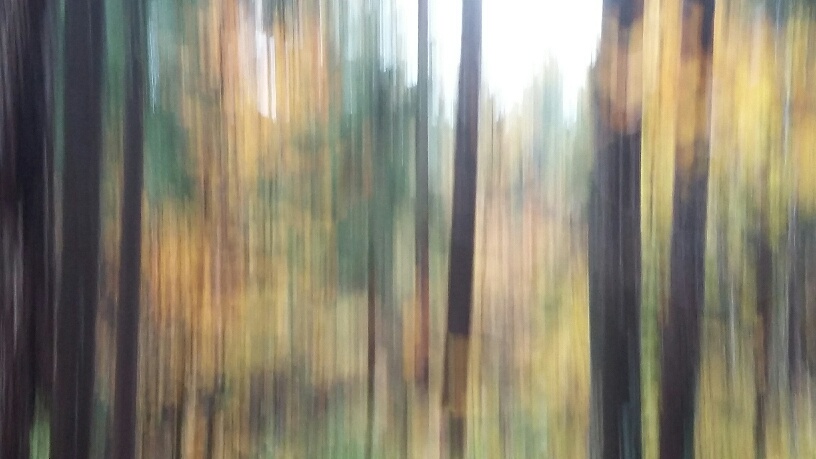
Are there moments when you doubt what you are doing?
Of course! I’m lucky to be torn out of these self-doubts, especially through readings, when I notice that my work is well received. At the moment I am also studying the CAS course “Writing in Art and Culture” at the ZHDK – to enter into an exchange, to discuss, to experience a resonance, also criticism, are all very important and motivating. So I’m working on my artistic self-esteem, but I also believe that phases of doubt are very good, they simply must not lead to long-term blockages and it’s important to always actively exchange ideas with others.
In retrospect, can you find something positive in difficult moments?
Three years ago I couldn’t find a publisher for a finished manuscript, and I only contacted independent publishers that I thought were good. That was bitter for me at the time but now I’m happy about it as I recognise that the text simply wasn’t mature yet.
The move back to Liechtenstein was also difficult. Before that, I lived mainly in Basel and spent a lot of time in Berlin. In Liechtenstein it was much too quiet for me and I was not able to write for months. In the meantime I have learned that I simply have to actively seek the the artistic impulses, the intellectual exchange in rural areas, they don’t come to me by themselves, but they are there.
Is there anything you would do differently in retrospect?
In the past I agreed to go everywhere and I wanted to participate in everything. In the meantime, I have learned not to accept every request, or not to send something in with every call for proposals, but to first ask myself whether I really want to do it, to what extent it will help me or if it is something close to my heart.
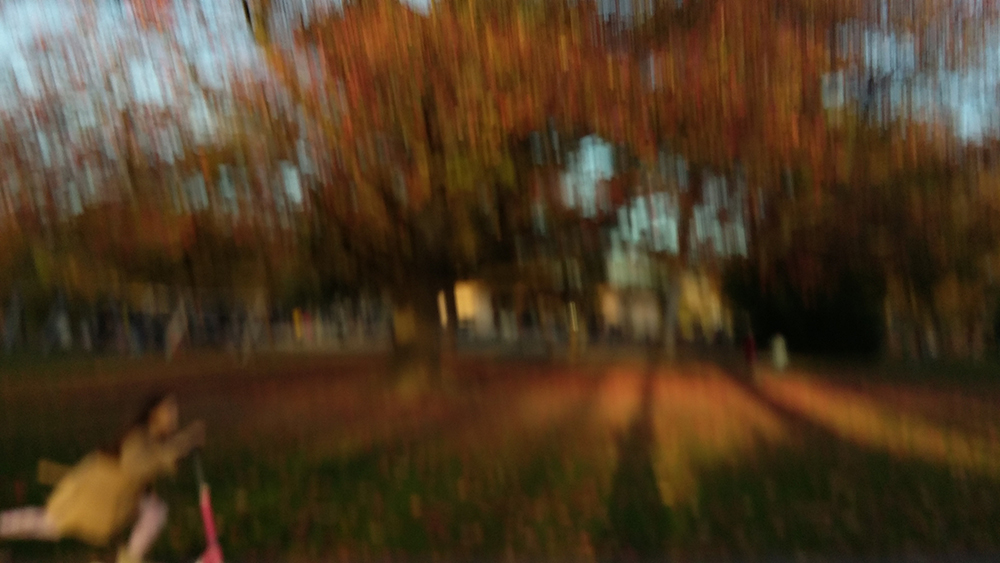
Do you want to contribute to society with your activities?
In my new project, the establishment of a Young House of Literature Liechtenstein, JuLi, I clearly want to make a contribution to society. In the intended projects, children and adolescents come into contact with writing as an artistic-playful practice and a democratic form of expression. The aim is to create an area of opportunity in which children and adolescents will receive exciting input and can get creative – without any pressure of being judged or having to perform. The long-term goal is that JuLi will reach out to students of all types of schooling, young people with or without a migration background, with or without special needs. The aim is to create a financially, idealistically and spatially barrier-free space in which anyone and everyone can strive to be creative. The first step in this direction is that as from the start of the new school year 2020/21 onwards, the Literaturhaus will be open every Wednesday afternoon for writing workshops with children and adolescents from 7 to 18 years old.
Is the recognition of other people or the public important to you?
Everyone needs recognition, that is a sociological fact. It was very important to me to publish my second book, my literary debut, with a publisher that is “recognized” in the German-speaking world. Since I have achieved this goal, I am much less dependent on recognition from others. I think I can give the most important recognition to myself by writing with pleasure. But to find “recognition” in the sense of positive feedback at readings is something very beautiful and nourishing; it does me good to feel that my texts are received and “heard”. And it is very nice for me when people read my books and write to me about them. I think it is very important to accept this form of recognition, not to belittle praise and just forget it, but it is even more important not to make myself and my own work dependent on it.
How well can you live from what you do professionally?
In the last three years my artistic work, due to readings and scholarships, has provided me with the income of about a 20-30% job. Sometimes it is very good and important just to write, for example to get a book going or to finish it off. Residency scholarships are worth their weight in gold for this and I support the idea of a basic income. It is important for me to stand on my own 2 feet, to have a professional and private everyday life that allows me to give space to my writing, but which sometimes also distracts me from it. However, I have not yet found the magic formula – I am still looking for it.
Is there something that is particularly occupying you at the moment?
To write kitsch-free about nature.
Is there something you would like to (increasingly) spend time on in the future?
I would like to read more and in a focused way again – reading is at times the most important part of writing. I would also like to dedicate more time to creative activities. In addition, with regard to my commitment to the Young House of Literature Liechtenstein, I read a lot in the areas of didactics of writing, creative writing, developmental psychology and art education – from the summer, I can approach this self-study in a more targeted manner and with more time on my hands. I am very much looking forward to this time of learning and trying things out.
What are you most grateful for in life?
For many things that I like to keep to myself in this public space.
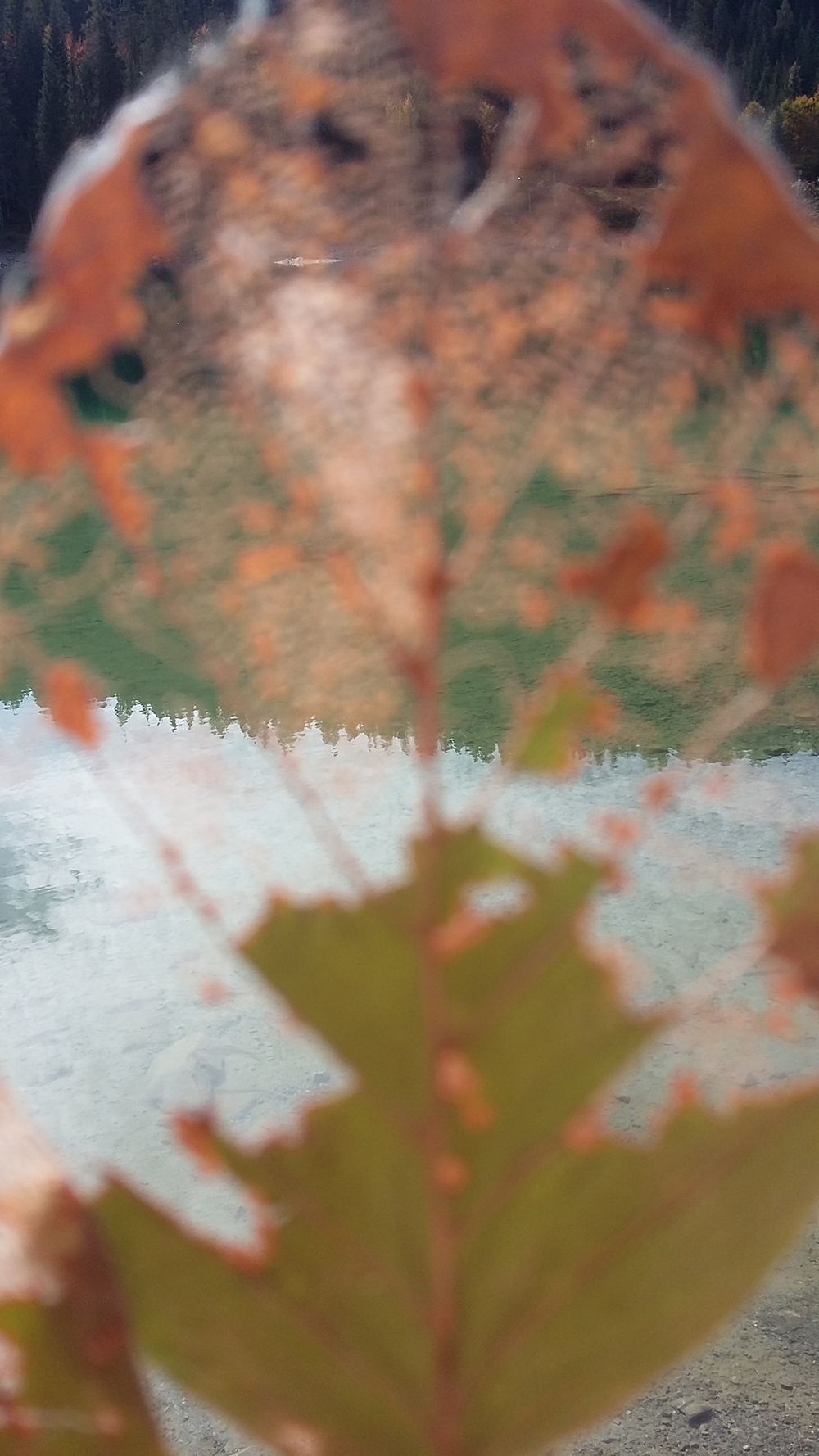
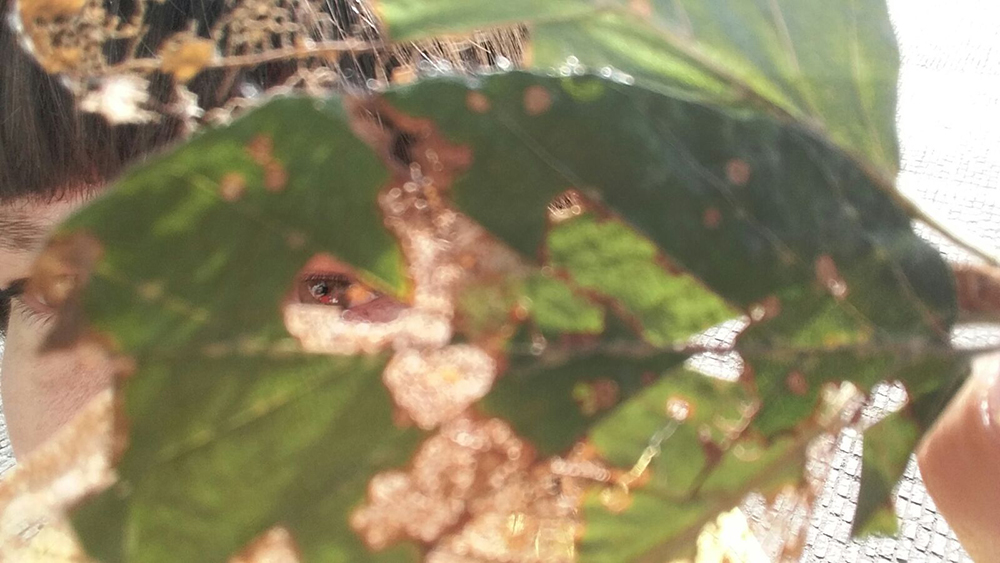
* Freewriting, also called automatic writing, is a strategy in which the writer’s stream of consciousness is brought to paper. There are umpteen approaches to this which are all very similar. For example, in her book “Writing down the Bones”, Natalie Goldberg established the following rules – besides the principle that one should practice daily:
- Keep your hand in motion.
- Do not stop to read the line again. This would mean a delay – an attempt to force the thoughts under your control.
- Do not cross out anything. This would mean that you are already editing while you are writing. Even if you write something you don’t want to write, leave it alone.
- Don’t bother with spelling, punctuation or grammar.
- Let yourself go.
- Don’t think. Don’t try to be logical.
- Don’t dodge the sore spot.
- If you write something that frightens you or makes you feel exposed, stick with it. There’s probably a lot of energy in that.
(Nathalie Goldberg, Schreiben in Cafés, Autorenhaus Verlag, Berlin, 2019 (1986))
Interview
Laura Hilti, June 2020
Illustrations
Stefani Andersen
Links
Limmatverlag
Limmatverlag: «Wurzelstudien» von Anna Ospelt
Bucher Verlag: «Sammelglück» von Anna Ospelt, mit Fotografien von Martin Walser
Juli (Junges Literaturhaus Liechtenstein)
Credits
Portrait photo/ Work table: Sandra Maier
All other photos: Anna Ospelt
This interview is part of the project “Magic Moments” by Kunstverein Schichtwechsel, in which people are interviewed about their careers, activities and their magical as well as difficult moments.
Curated by Stefani Andersen and Laura Hilti, Kunstverein Schichtwechsel.
Supported by Kulturstiftung Liechtenstein and Stiftung Fürstl. Kommerzienrat Guido Feger.
>>> All interviews

